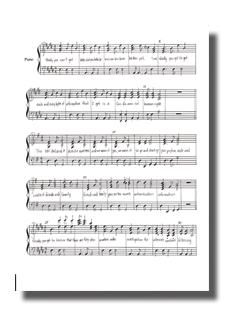shock: civil liberties
Fewer than one people in three now believes that most people can be trusted. Or, to put it another way, most people now believe fewer than one person in three can be trusted. Either way, they’re probably right, as is borne out by the proliferation of CCTV cameras everywhere, which can now overhear us talking from 100 metres. (But hang on, how many people could there be at any one time in a 100 metre radius from a camera? It must be in the thousands. Who has the software to decrypt one conversation from that?)
The received wisdom is that it’s a bad thing to be the most surveyed nation on the planet, though it seems nobody actually knows for sure we are.
Obviously, what we need is somebody to survey the surveyors.
In fact, we’ve always believed somebody was watching us – only we used to call them God. I, for one, am extremely pleased that miscreants know their evil deeds are being monitored.
Though not as pleased as I’d be if they knew there was a fiery pit below the the tarmac.
But the threat to our liberty from cameras is as nothing compared to that from our own MPs. Those guardians of Britishness, fair play, warm beer and Thomas Paine have allowed the government to create three thousand in the last ten years, (and probably loads more since that figure was published in 2006).
In the same period – the lifetime of my son – the same government has managed to arrogate to itself no fewer than including ‘checking for foreign bees’, ‘inspection of high hedges’, ‘checking for offences related to stage hypnotism’, surveying the seal population’ and ‘carrying out fact-finding missions in accordance with the Ottawa Convention on Landmines.’
And now there’s the – a controlling body to limit the power of controlling bodies, which is probably just what we need, as our beloved mother of Parliaments has also let slip by an average of 2,685 new regulations of one kind or another every year. Every year.
So between what we’re not allowed to do, and what the Government is allowed to do, and being watched and listened to night and day to make sure we know the difference, you might think our civil liberties were just about defunct.
Luckily, America, where Tom Paine fled with his Rights of Man for what now seem to be pretty valid reasons, has invented some nifty stratagems for evading at least online surveillance. The Electronic Frontier Foundation, which came into being around the same time as the Internet, (think libertarians with laptops for rifles) has a stealth network called TOR that enables people to surf anonymously, and can also turn home computers into
And University of Toronto scientists have produced a software package that allows people in places where there is still some freedom, to funnel banned websites untraceably to places where there isn’t, eg China.
Who wouldn’t love a piece of software with a credit to ‘James “champagne” Robertson from Run With The Kittens’?


